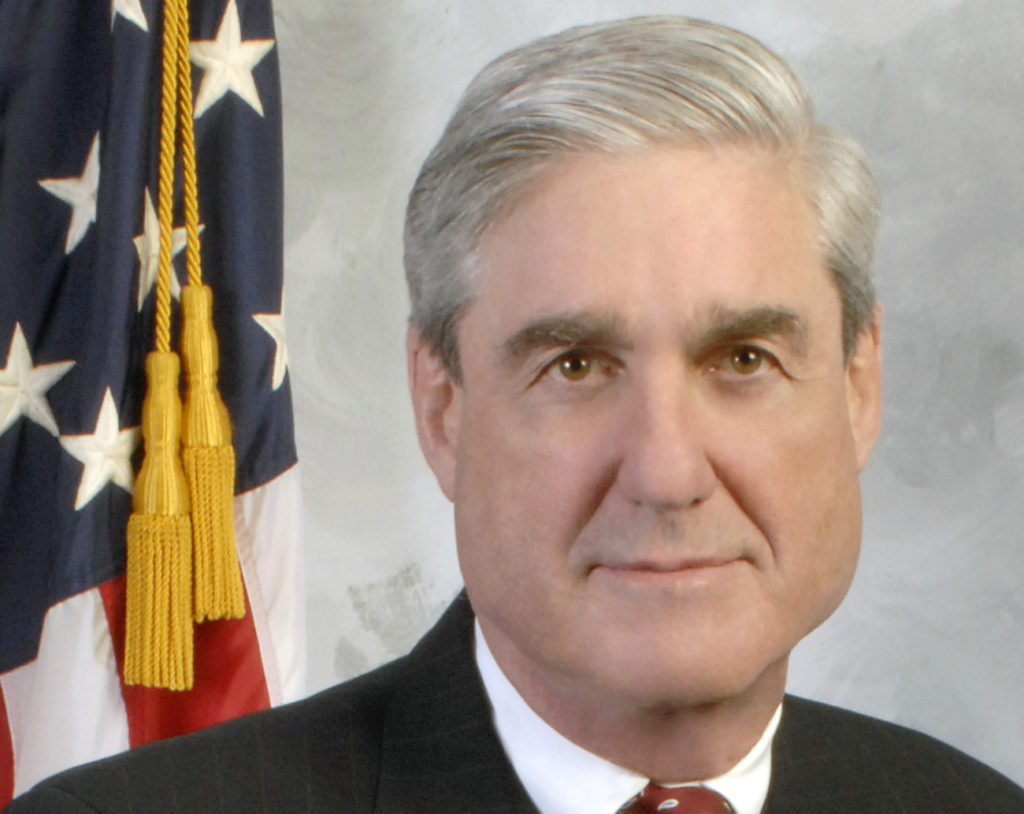The real reason Robert Mueller may have sent his investigation underground

This afternoon I was trying to describe to a friend the size and complexity of the Department of Justice. I have worked for four different cabinet-level agencies, so I understand something about the scale of their operations. As I was explaining this to my friend, something significant occurred to me about the recent end of the Special Counsel’s investigation. Read through this brief lesson about the operations of cabinet-level agencies for the payoff about how this information could help explain the end of the Special Counsel’s investigation.
The Department of Justice (DOJ) is a mammoth organization with over 118,000 full-time employees. The FBI is one of many agencies inside the Department of Justice. The Federal Bureau of Prisons, The Marshals Service and the Bureau of Alcohol, Tobacco and Firearms are also agencies inside the DOJ, along with dozens of additional offices, agencies and divisions. Their annual budget is approximately $31 Billion.
The thing about these mammoth organizations is that they have defined organizational structures, with clear layers of authority. They also have two very distinct types of employees: career federal employees (lower level), and presidential appointees (higher level). Career employees sometimes refer to the agencies as huge ships with hundreds of people working diligently below the ship’s deck, while a handful of people control the ship from above. This analogy is used to illustrate that the handful of people above deck can be replaced without the people below really noticing, and to explain that the people above are often completely unaware of what is happening below. While there are many exceptions, the rule is that people above do not become people below, and they seldom know much about what happens below the deck.
What is interesting is the exception of Robert Mueller. Robert Mueller was famously the head of the FBI, but he also worked for many years as a prosecutor, and a homicide detective, and he was a US Marine. As a soldier, he learned exactly what kind authority was held at every level, and he learned what to brief up the chain of command and what to handle on his own. All of his experience gives Mueller a very unique understanding of how business is done at each and every layer inside the Department of Justice. He knows who signs off on what actions, what actions get briefed up the chain of command, and what information stays within an office, division or Bureau.
As a separate, but easy example of this concept, the Federal Aviation Administration (FAA) is inside the Department of Transportation. Imagine the FAA is investigating a complaint about an airport. It is unlikely that the head of the FAA would ever hear about an individual investigation of an airport. All information about the complaint and the investigation would likely stay inside the Airports Division, and never reach the desk of the head of the FAA. It is even more unimaginable that a single case would cause the head of the FAA to brief the head of the Department of Transportation.
It is also an unimaginable breach of protocol and procedure for anyone from the Department of Transportation to reach out to an individual employee of the FAA. All correspondence or inquiries from the DOT would be directed to the head of the FAA and then assigned to an employee.
Robert Mueller knows all the details about the organizational structure inside the DOJ. He knows at what level decisions are able to be made. You know who doesn’t likely know exactly how this works? Attorney General William Barr. He has not spent enough time “below the deck” of the DOJ to understand this as well as Mueller does. You know who doesn’t understand this at all? Donald Trump.
So, what does this means in terms of the “Mueller investigation?” As Special Counsel, Robert Mueller uniquely sat on top of nearly the entire Department of Justice organizational structure, and he answered directly to the Deputy Attorney General and the Attorney General of the Department of Justice.
If a new Attorney General is named who is hostile to the mission that Mueller wanted to accomplish, then the last place to keep his mission is in an office that is answering directly to the new AG. Instead, he could easily and justifiably, refer specific actions deep down below the deck of the ship. Actions can be legitimately be so far down below the deck of the ship, they would be completely invisible to the small, new crew on the deck of the ship.
Interestingly, Mueller would have a responsibility to brief the Attorney General and his Deputy on some information about what he was handing off to others inside the DOJ. For example, if he were recommending any new indictments, he would have to brief the Attorney General about that. However, if, he came to no conclusions, and instead just handed off referrals in the normal course of an investigation, allowing them to made decisions about indictments, all of those referrals should not rise to the level of inclusion in a brief to the Attorney General.

Cheryl Kelley lives in the DC area with her husband and young son. She is active in government and politics.
